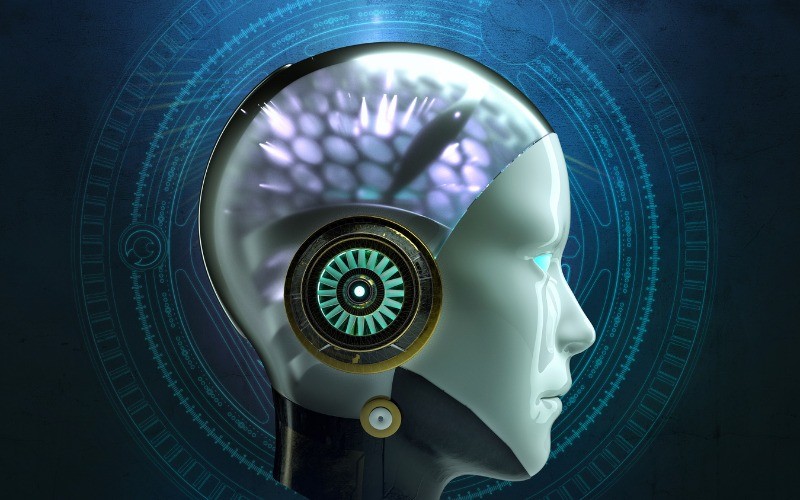The convergence of artificial intelligence (AI) and search engine optimization (SEO) has become a dynamic force in the ever-changing environment of digital marketing. While the realm of algorithms and keywords may appear intimidating, there is a lighter side to AI in SEO that is often overlooked. Join us on an unexpectedly entertaining tour into the realm of AI SEO fun facts that will not only tickle your funny bone but will also provide significant insights into the humorous side of digital marketing.
AI is a natural comedian:
Some SEO algorithms have a sense of humor, in contrast to the serious and calculated image of artificial intelligence. Google’s search engines, for example, are famous for their Easter eggs and odd replies to specific requests. Ask Google, “Do a barrel roll,” and you’ll notice a fun spin on your search results. While these may not have a direct impact on SEO techniques, they do lend a sense of levity to the otherwise complex world of search engines.
Penguins and Pandas Aren't Zoological Fans:
Penguin and Panda are not cuddly, fuzzy critters in the world of SEO, but rather Google algorithmic upgrades aimed at improving search results. Penguin targets websites with spammy backlinks, whereas Panda targets low-quality content. Despite their serious aims, these algorithm tweaks have earned hilarious nicknames among the SEO community, demonstrating the industry’s ability to transform the technical into the whimsical.
RankBrain: The SEO Classroom's Brainiac:
Google’s RankBrain, a 2015 AI system, is critical in analyzing and interpreting user requests. What makes RankBrain so appealing is its ability to self-improve. It learns and adapts when it receives new and novel queries, becoming more proficient over time. It’s like having a hardworking kid in your SEO class who is always eager to learn and progress—an unexpectedly endearing part of the digital scene.
Chatbots: Virtual Customer Service Representatives for SEO:
Chatbots are the unsung heroes of the field of online customer care. They not only provide immediate responses and support, but they can also manage queries with a sense of humor. Many businesses inject personality into their chatbots, transforming mundane encounters into humorous exchanges. These AI-powered bots not only improve the user experience but also demonstrate the ability to add humor to the generally transactional aspect of digital interactions.
Voice Search: The SEO Stand-Up Act:
With the proliferation of speech-activated devices, voice search has emerged as an important part of SEO. The way individuals connect with these voice-activated aides is remarkable. Users frequently use casual, conversational tones, asking queries in ways they would not normally type. SEO techniques are adjusting to this trend by focusing on more natural language searches, thereby converting voice search into a stand-up comedy routine in which the audience serves as the AI helper.

Algorithm Dance-Offs: SEO’s Got Talent:
Search engines’ algorithms are always being refined behind the scenes in order to offer users the most relevant results. This continual dance between algorithms and website content might feel a little like a talent show at times. Websites seek to please algorithm judges with their material, optimizing and polishing their performances in order to earn a high spot in search rankings. It’s a fun analogy for the ever-changing nature of SEO techniques.
Mobile-First Indexing: SEO's Fast and Furious:
Google’s mobile-first indexing stresses the relevance of mobile-friendly websites in search rankings. Websites optimized for mobile devices take the lead in this fast-paced SEO competition. The analogy between websites fighting for the top slot and vehicles flying around a track is amusing. Mobile-first indexing has transformed the SEO circuit into a high-speed race in which the websites that are the fastest and most mobile-responsive gain the coveted pole position.
404 Errors: SEO’s Lost and Found Department:
A 404 error page can be unpleasant for users, but it’s an intriguing feature of website administration from an SEO standpoint. Websites can repurpose mistake pages as creative areas, offering consumers a chuckle or a clever redirection back to relevant material. The 404 error page becomes SEO’s very own lost and found department, turning an annoyance into an opportunity for levity and connection.
Keyword Cannibalization: SEO’s Culinary Conundrum:
When numerous pages of a website compete for the same term, the effectiveness of each page is possibly diluted. This occurrence is similar to a culinary conundrum in which several foods compete for attention on the same menu. SEO experts take on the role of chefs, meticulously constructing a well-balanced dish (website) to ensure that each term has its turn in the spotlight without overshadowing others.
SERP Features: SEO’s Variety Show:
SERPs (search engine results pages) have progressed beyond the basic blue links. They now resemble a variety show, with rich snippets, knowledge panels, local packs, and other features. SEO specialists compete to get featured snippets that deliver succinct, helpful responses to user queries in this digital variety show. It’s as if websites are contestants competing for the spotlight in SEO’s own talent-packed variety show.
The Dance of Algorithms: SEO’s Masquerade Ball:
Search algorithms are continually changing partners and perfecting their moves, much like masked dancers at a masquerade party. Websites, decked up in their best SEO garb, join in the fun, adjusting their techniques to the beat of algorithmic revisions. The metaphor of a masquerade ball emphasizes the fascination and mystery surrounding algorithm upgrades, where websites attempt to uncover the secrets of keeping up with the ever-changing dance of SEO.
Canonicalization: SEO’s Zen Master Move:
Canonicalization, or the process of condensing duplicate material under a single canonical URL, is SEO’s equivalent of a zen master move. It improves the digital landscape by reducing uncertainty and ensuring that search engines recognize the preferable version of a page. Mastering canonicalization is analogous to obtaining a state of tranquility in the world of SEO, where websites achieve balance and clarity within the sometimes turbulent area of search engine rankings.
While the world of artificial intelligence in SEO may appear to be a serious industry, understanding the fascinating facts behind the algorithms and methods exposes a surprisingly humorous side. The world of SEO is never lifeless, with anything from funny search engine answers to algorithmic dance-offs.
The entertaining facts continue to highlight the humorous subtleties of this dynamic area as we explore deeper into the domain of AI-driven SEO. From mobile-first races to culinary SEO conundrums, each aspect adds a layer of levity to the serious job of search engine optimization. Accepting unexpected comedy in SEO not only makes the journey more fun but also inspires creativity and innovation in the ever-changing field of digital marketing.
In the spirit of embracing the lighter side of digital marketing, consider how these amusing facts might inspire innovation in SEO techniques. After all, in the fast-paced world of AI and SEO, a sense of humor could be the surprising secret to success. So, while we traverse the ever-changing landscape of digital marketing, where AI and SEO join forces in the pursuit of online greatness, let us continue to laugh and learn.


